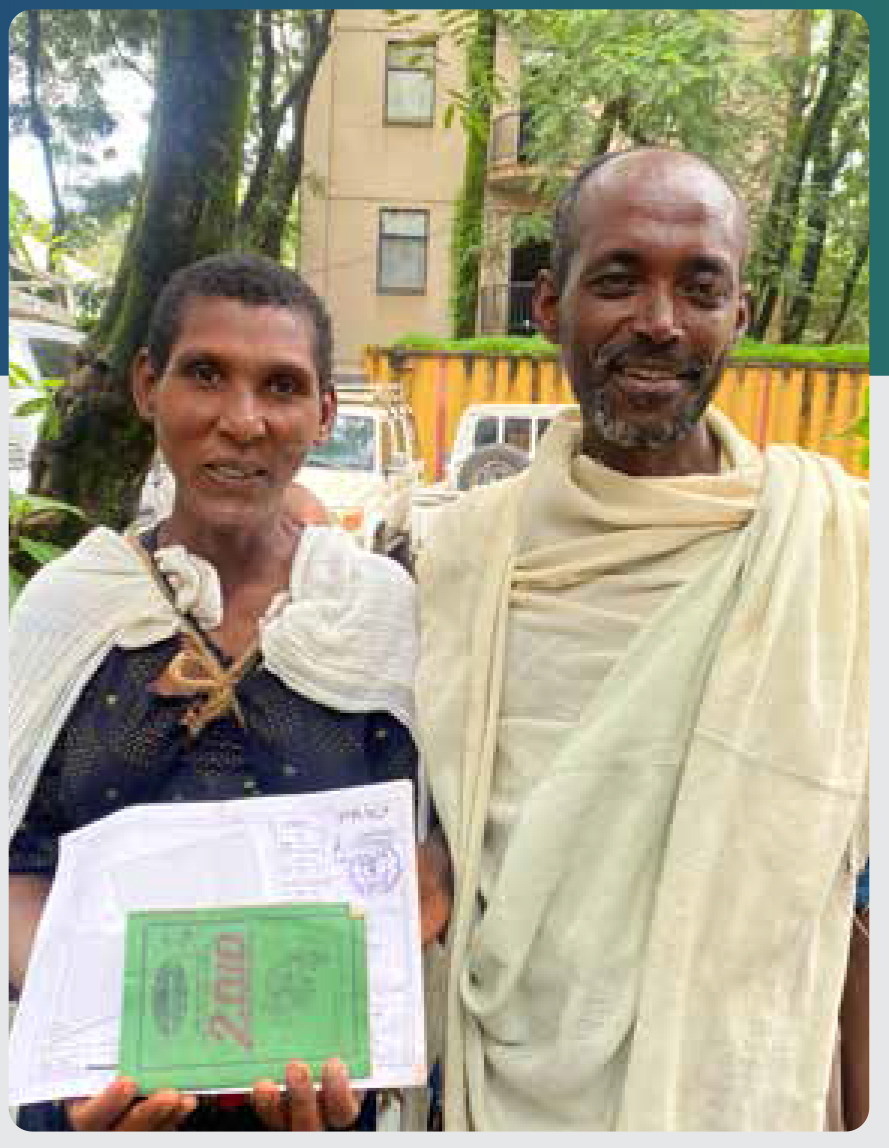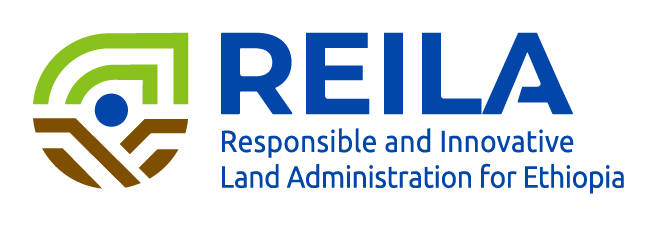Transforming Land Tenure Security with Second-Level Land Certification (SLLC)
The Second-Level Land Certification (SLLC) program, a core component of the REILA Project, is revolutionizing land tenure security in Ethiopia. By issuing detailed and legally recognized land certificates, the initiative has empowered millions of rural landholders, ensuring secure ownership, reducing disputes, and fostering economic growth.
The Certification Process
Community Awareness & Engagement
- Public Information and Awareness (PIA) campaigns inform rural communities about land rights and the importance of certification.
- Special emphasis is placed on gender inclusion, ensuring that women and vulnerable groups actively participate in the process.
Parcel Identification & Surveying
- Land parcels are surveyed using orthophoto/satellite imagery, ensuring high accuracy.
- General boundary principles define parcel borders with the involvement of local communities.
Public Verification & Dispute Resolution
- A public display of collected data allows landholders to verify their land details, resolve disputes, and confirm rightful ownership.
- Community testimonies play a crucial role in confirming historical land claims.
Digital Registration & Documentation
- Data is recorded in the National Rural Land Administration Information System (NRLAIS), transitioning Ethiopia’s land records into a fully digital registry.
- Landholders' names, photographs, and parcel details are included in the official certification documents.
Issuance of Second-Level Land Certificates (SLLC)
- Farmers receive official certificates, ensuring long-term tenure security and legal recognition.
- Certificates include detailed parcel maps, enhancing clarity, transparency, and usability.
Impact of Land Certification
Strengthening Land Tenure Security
- Over 30 million land parcels have been certified, securing ownership for rural communities.
- 81% of land certificates were issued under co-titling arrangements, promoting gender equality and joint ownership.
Economic Growth & Agricultural Investment
- Farmers now invest confidently, planting cash crops and permanent trees like mango, avocado, and coffee.
- Land previously left fallow is now being productively utilized, increasing crop yields and food security.
Unlocking Financial Opportunities
- SLLC certificates serve as collateral for loans, leading to the disbursement of over 4.9 billion ETB (~87 million USD) in credit for rural landholders.
- Access to Finance (A2F) programs, enabled by SLLC, allow farmers to purchase modern agricultural machinery.
Social Transformation & Women’s Empowerment
- Women’s land rights are protected, ensuring equal access to land ownership and inheritance.
- Legalized ownership has reduced land-related conflicts, strengthening family stability and social cohesion.
Enhancing Land Rental & Market Confidence
- Formalized land records have led to an 81.6% increase in cash rental transactions and a 23.5% rise in sharecropping agreements.
- Rural households experience a 30% boost in rental income, benefiting from improved bargaining power.
Environmental Sustainability & Climate Resilience
- Farmers are adopting sustainable land management practices, preventing soil erosion and deforestation.
- Permanent tree planting and responsible land use contribute to climate resilience and long-term ecological stability.
A Success Story
Girma Kebede and his wife, Enquanesh Worku, from the Amhara Region, highlight the real impact of land certification:
Girma’s story highlights how Ethiopia’s Second-Level Land Certification (SLLC) resolved years of familial conflict over inherited land. Previously, unclear boundaries and insecure tenure led to disputes with his eldest brother, who claimed the largest share. The 1989 registration lacked individual demarcation, fueling tensions. SLLC’s government-backed process legally registered parcels under each sibling’s name, with community testimony ensuring fair division. This ended conflicts, secured boundaries, and prevented potential violence.
Post-certification, Girma and his wife now cultivate all five parcels, growing maize, sorghum, teff, and permanent trees (mango, avocado, orange, khat), boosting productivity. Clear land size data eliminated guesswork, enabling efficient use. Previously fallow land is now fully utilized, transforming subsistence farming into commercial ventures. Tenure security spurred investments, economic growth, and reduced disputes.
Enquanesh echoes this transformation: We work together, make joint decisions, and fearlessly protect our rights. Community-wide, fallow land vanished as farmers compete to maximize output, driven by ownership pride. Disputes dwindled, replaced by collaboration and accountability.
SLLC’s binding certification fostered trust, stability, and sustainable land use. Girma’s family, once trapped in conflict, now thrives economically, securing their children’s future. The initiative underscores how legal clarity and tenure security unlock rural potential, turning insecurity into prosperity.


